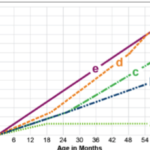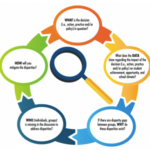The Early Childhood Data Use Assessment Tool is designed to identify and improve data use skills among early childhood education (ECE) program staff so they can better use data to inform, plan, monitor, and make decisions for instruction and program improvement.
Tag Archives: Program Improvement
Building a Better Data System: What Are Process and Data Models?

This DaSy report provides an overview of process modeling and data modeling and explains the value of each in the development or major enhancement of data systems. Process modeling and […]
Using Child Outcomes Data to Drive State and Local Program Improvements

Conference: Division for Early Childhood’s (DEC) 36th Annual International Conference on Young Children with Special Needs and Their Families Date: January 2021 Presenters: Jennifer Barrett-Zitkus, Christina Kasprzak, Kathleen Hebbeler, Cornelia […]
Using Data from Families of Young Children to Advance Program Equity

Part C and 619 staff can use the content in this session to address common issues with data about families. In particular, staff can learn how one state used a structured approach to identify challenges with their family outcomes data and develop intentional strategies to address those challenges.
Using Part C Family Outcomes Data to Examine Equity and Representativeness

This presentation can help Part C staff and other stakeholders gain strategies for identifying representativeness in response rates and how to ensure all families’ voices are represented in family survey data.
What It Takes for Practice Change: Evidence-Based Practices for Social-Emotional Outcomes

The improvement of social and emotional outcomes for young children depends on practitioners using evidence-based practices in the support of families and the instruction of young children. Join this session to discuss what it takes to improve and sustain practice implementation with a focus on social-emotional practices.
Building A Culture of Data Use: You TOO Can Become a Data Leader!

What is data leadership? How do data leaders create and sustain a culture of data use? How do we know what to focus on and if we’re doing it right? Join this interactive session to explore these questions and learn about strategies and resources for developing a culture where data are used for continuous improvement as part of day-to-day operations.
Using the Preschool Development Grants (PDG) to Build Inclusive Systems

The Preschool Development Grants (PDG) present an opportunity for states to build more coordinated, inclusive state systems to better address the needs of all young children and their families including those with disabilities. Come learn about how Part C and Part B 619 state agencies are contributing to the PDG efforts in their states. This session also will provide opportunities to share and hear state plans, accomplishments, and challenges in using PDG to support improved services and outcomes for children with disabilities.
State Systemic Improvement Plans (SSIP): Where Do We Go From Here?

Considering SSIP modifications due to COVID-19? Planning statewide scale-up or thinking about how to sustain infrastructure and practice improvements proposed in your SSIP? Considering a new State Identified Measurable Result (SIMR) or implementing different evidence-based practices? If you answered yes to any of these questions, join this interactive session to begin planning how to assess your state’s SSIP, past and present, and consider the future of your SSIP.
Change is a Given: New Requirements for Reporting Educational Environments for Preschoolers

In this session, facilitated by IDC and ECTA staff, we will present information and have a discussion of the changes to the 618 Child Find data collection for preschool educational environments. Educational environments for children ages 3–5 will now require a count of children who are 3 through 5 years of age on the state-determined collection date who are receiving preschool services but will no longer include those children who are age 5 and in kindergarten.

